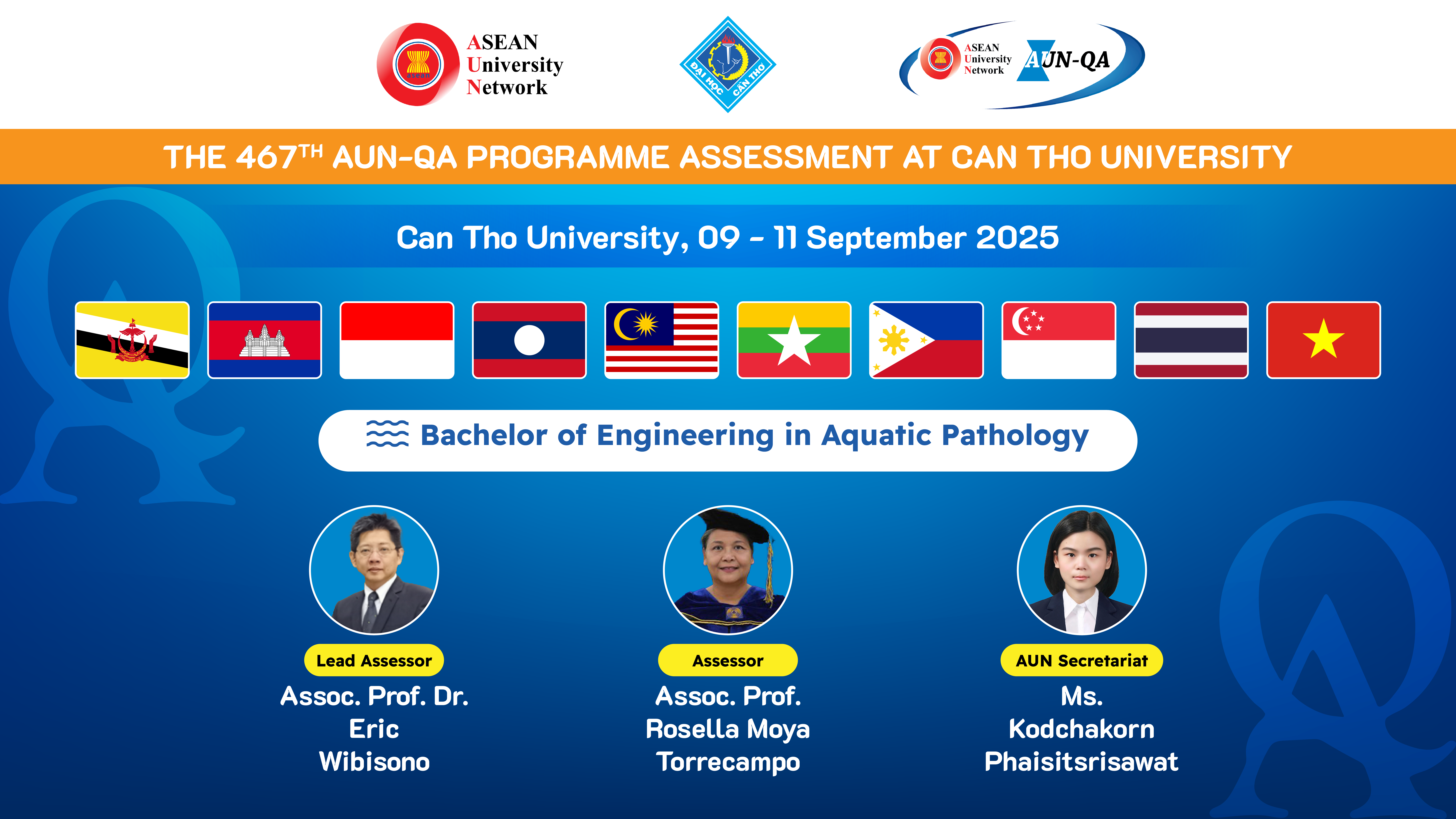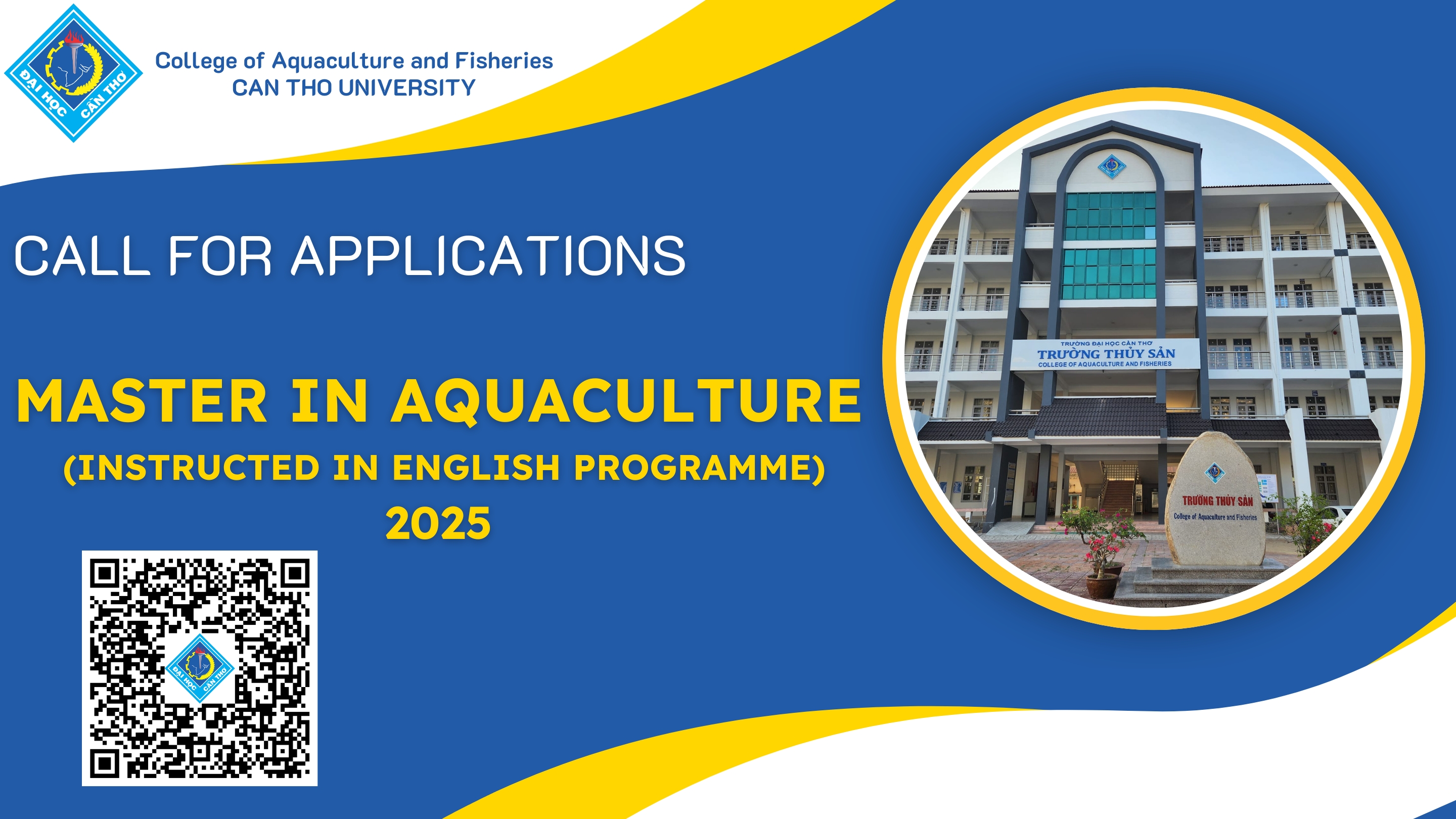PROJECT INFORMATION
|
Project Title |
Training and Research on physiological constraints in aquaculture in the Mekong delta region PhysCAM) |
|
Project Partners |
University of Aarhus and VietNam |
|
Funding Sponsor |
Denmark |
|
Budget (DKK) |
6.943.980 |
|
Project Coordinator |
Prof. Mark Bayley |
|
Local Coordinator |
Prof. Nguyen Thanh Phuong |
|
Project Period |
1 January 2007 – 31 December 2010 |
|
Overall Objective |
Applied research capacity-building to promote sustainable aquaculture growth in the Mekong river delta |
|
Specific Objectives |
The aim of this proposal is to train Vietnamese students and academics in animal and plant physiology, and to supervise their research into applied aspects that will allow for immediate and significant optimization of farmed fresh water animal growth. |
|
Activities |
|
|
Outputs |
|
|
Project website |
|
-
Panel discussions on Innovations and Aquaculture Adaptation and Nature-based Solutions (NbS) in aquaculture at iCAF2024
 Can Tho University, the College of Aquaculture and Fisheries, organized the International Conference on Aquaculture and Fisheries on 17-18 October, 2024 at Phu Quoc Island, Kien Giang province (Mekong Delta, Vietnam) (iCAF2024). The conference consis...
Can Tho University, the College of Aquaculture and Fisheries, organized the International Conference on Aquaculture and Fisheries on 17-18 October, 2024 at Phu Quoc Island, Kien Giang province (Mekong Delta, Vietnam) (iCAF2024). The conference consis... -
Call for 3rd batch applications: fellowship opportunities under Mekong Thought Leadership and Think Tanks Program
 The Mekong Thought Leadership and Think Tanks Network Program is providing fellowship opportunities hosted in Cambodia, Lao PDR, Thailand, and Vietnam. The program will award 12 entry- or mid-level professionals of all genders who are Mekong citizens...
The Mekong Thought Leadership and Think Tanks Network Program is providing fellowship opportunities hosted in Cambodia, Lao PDR, Thailand, and Vietnam. The program will award 12 entry- or mid-level professionals of all genders who are Mekong citizens... -
Graduation Ceremony of International Master Programme in Aquaculture (instructed in English), academic year 2021 - 2023, within the framework of the VLIR-Network Programme
 Graduation Ceremony of International Master Programme in Aquaculture (instructed in English), academic year 2021 - 2023, within the framework of the VLIR-Network Programme On February 28th, 2024, the College of Aquaculture & Fisheries (CAF), Can...
Graduation Ceremony of International Master Programme in Aquaculture (instructed in English), academic year 2021 - 2023, within the framework of the VLIR-Network Programme On February 28th, 2024, the College of Aquaculture & Fisheries (CAF), Can...
- Awarding a Certificate of Appreciation of Can Tho University to Professor Patrick Kestemont, Namur University, Belgium
- Ceremony of awarding a certificate of appreciation for Can Tho University development to Professor Marie-Louise Scippo, the University of Liege, Belgium
- Huynh Nguyen Nguyen Ha, a student of Advanced Program in Aquaculture, selected for one-year internship in Greenfish AG, Switzerland
- Master in Aquaculture (Instructed in English Programme) 2025
- Tran Xuan Loi (College of Aquaculture and Fisheries, Can Tho University) won a Rieger Award 2022



